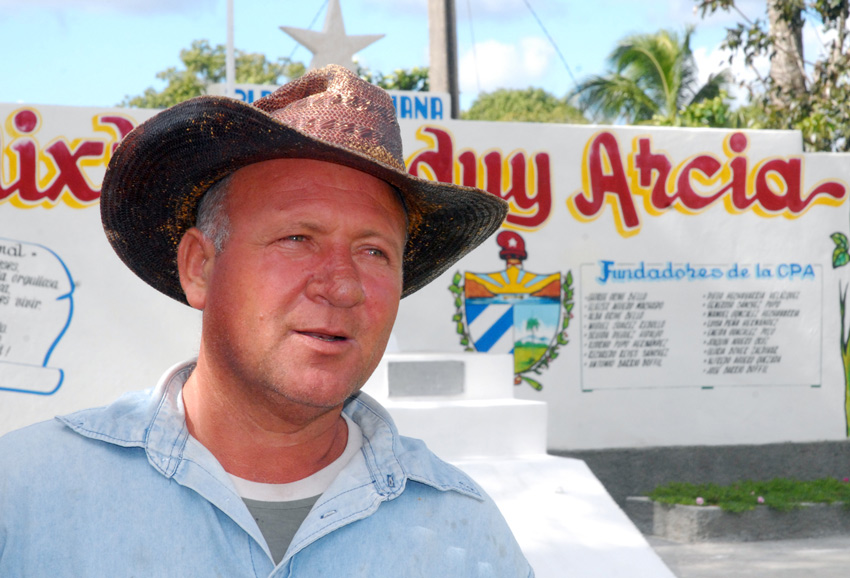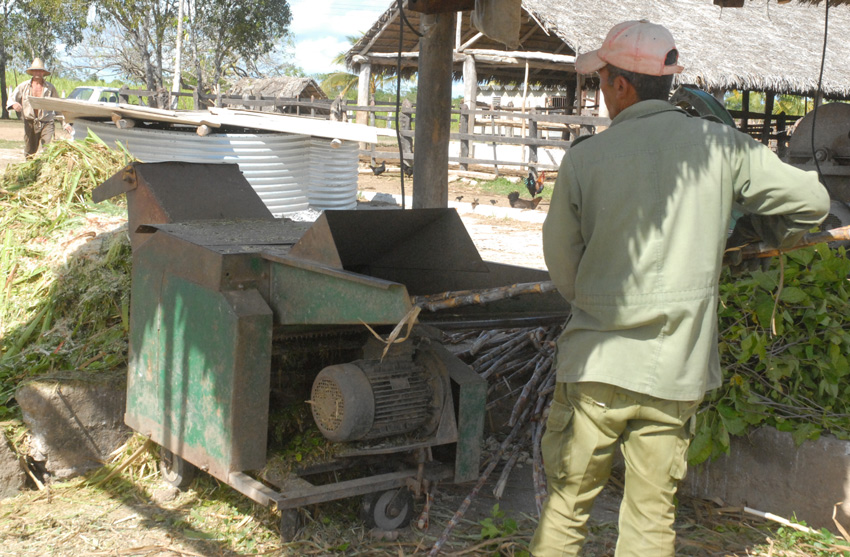
The “Calixto Sarduy” was awarded the National Vanguard Condition and the Niceto Pérez Flag of Honor. Its results support such significant awards.
Las Tunas, Cuba.- Right in the town of Becerra, located in the municipality of Las Tunas, the agricultural production cooperative (CPA) stands above any difficulty. It is only necessary to approach those properties to notice that there, those who waste sacrifice, sweat, and soul, have a sense of belonging that runs through their veins.
Few fertile soils and low productivity characterized these places. But, far from being an obstacle, it became a challenge. "The task was not easy, nor it is today when we have made much progress in terms of soil conservation," Reydenis González Céspedes, president of the Cooperative, comments to 26. “However, none of us gives up."
 The efficient use of the land, the application of numerous agricultural techniques, and other projects in favor of nature currently being developed mark the day-to-day. Now, the construction of a factory to produce the Ecomic biofertilizer, a product that replaces chemicals, fundamentally NPK, takes away their sleep. According to the agronomist Rafael Antonio García Ramayo, associated with the entity, “it is very viable, as it is completely natural and its elaboration does not require components that are difficult to access.”
The efficient use of the land, the application of numerous agricultural techniques, and other projects in favor of nature currently being developed mark the day-to-day. Now, the construction of a factory to produce the Ecomic biofertilizer, a product that replaces chemicals, fundamentally NPK, takes away their sleep. According to the agronomist Rafael Antonio García Ramayo, associated with the entity, “it is very viable, as it is completely natural and its elaboration does not require components that are difficult to access.”
It is the second plant of its kind that is built in Cuba; so far they project to obtain about 20 tons each year. Nevertheless, local interests are analyzing its expansion, which could generate three more tons.
Reydenis explains that “the agroecological movement works efficiently, since we are immersed in the polygon of soils, where we already have several hectares treated with novel methods, and we have achieved high production and economic yields. We do not stop using organic matter, worm humus, and barriers, among other alternatives.”
They have also placed their hopes in the kitchen garden. "With the implementation of these techniques in the 0.75 hectares of the vegetable beds, we noticed the advantages a mile away," Juan Cabrales Rodríguez, head of that area, says. “We have carrots, cucumbers, pumpkin, lettuce, melon, and beets. The specimens of the latter have reached up to two pounds and it is, precisely, by applying science ", Cabrales Rodríguez added.
NO CRACKS IN DELIVERY
"Despite the drought, we have fulfilled all our production commitments," González Céspedes emphasizes. In livestock, we have a plan of 60 tons of meat and 230 thousand liters of milk, and to alleviate this dry period we focus on sowing pastures and fodder.”
In various crops, there is progress. More than 72 hectares are dedicated to that purpose and they are already working on another 30 to reach the plots that respond to self-sufficiency. Its agricultural plans hope to exceed 440 tons in the year.
"The mini-industry does not stop either," Elio Piñeiro Hidalgo, vice president of the CPA, points out. “We are processing the tamarind pulp, with marked acceptance in the community; we make tomato puree, which is on a smaller scale and, the best of all, is the oven that we have ready to produce more food.”
"With this equipment, we could make three thousand pancakes with cassava flour, but it has been impossible to access the small percentage of wheat flour in the formula. We would like that like the self-employed workers, we could buy it. That would really increase production," he assures.
RESULTS
“Every day, there are more farmers who want to work in this cooperative,” Reydenis says jubilantly. “The people of the community realize that our sacrifice is not in vain, because they see the results in production and our economy, which makes it possible for them to be enthusiastic when it comes to working, and more who want to belong here.”
"The board of directors has been successful in rescuing human values," confirms the president of the CPA. It is demonstrated with the achievements because every year we are profitable; despite the weather situation, our productions increase, and this has to do with the organization of work, that is the role of the board.”





